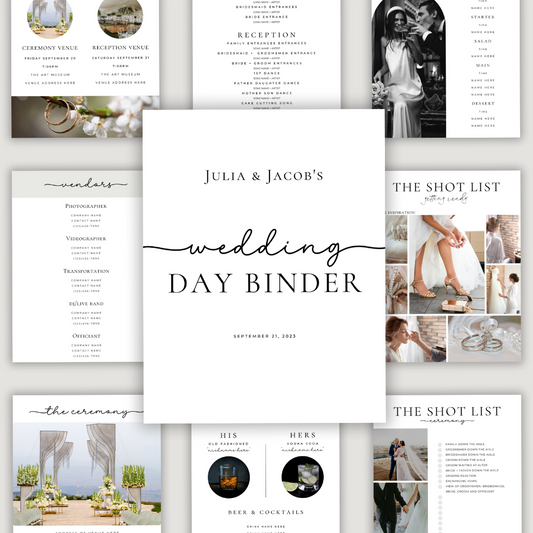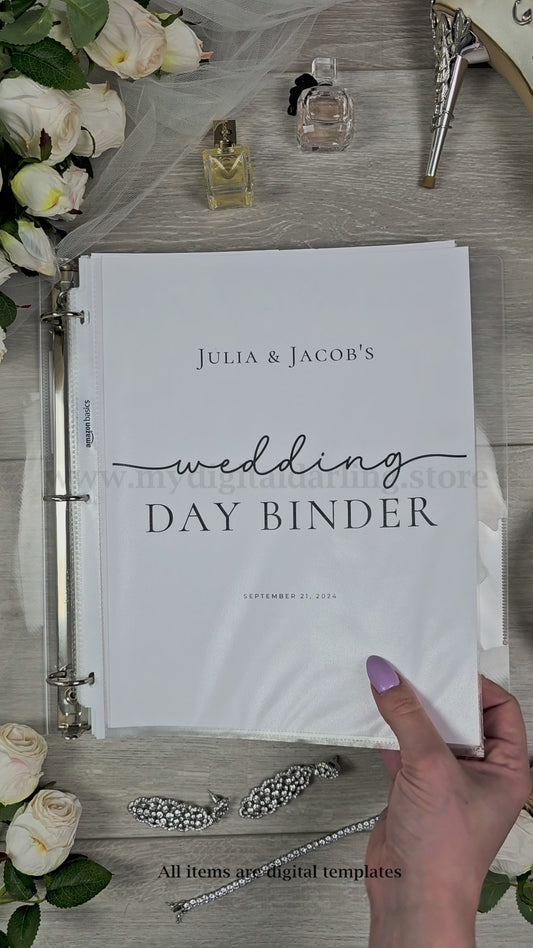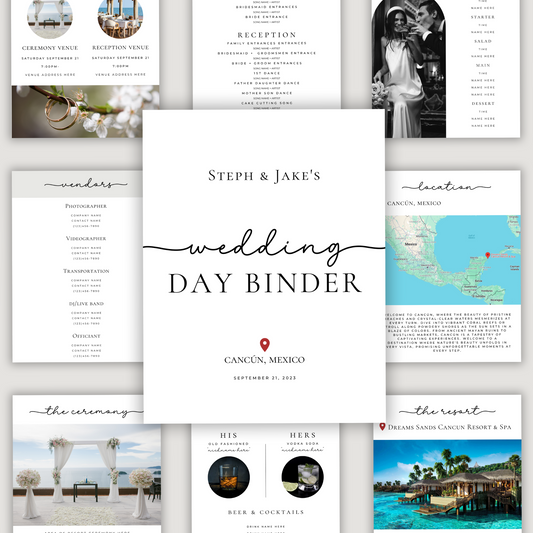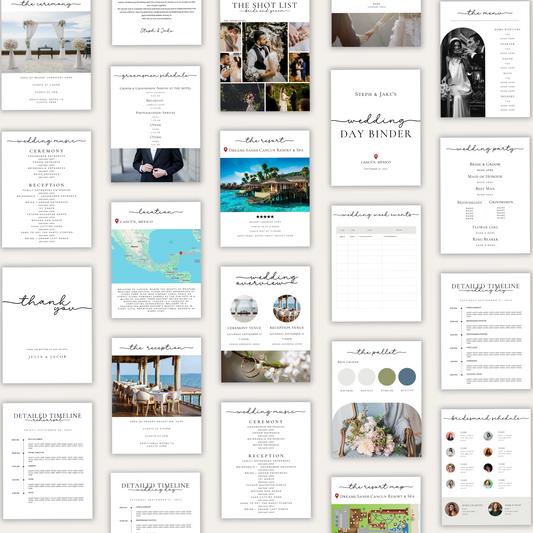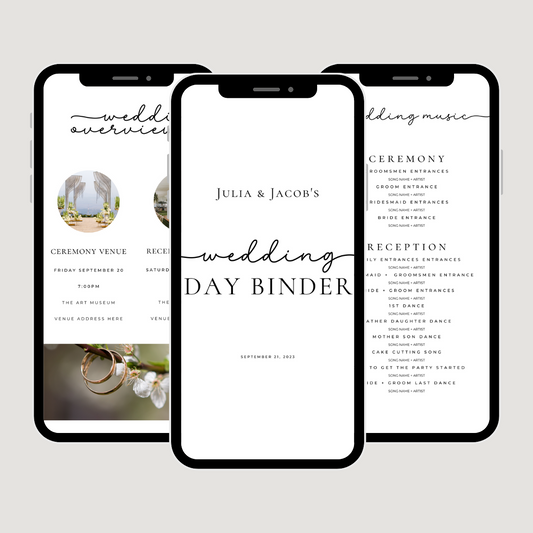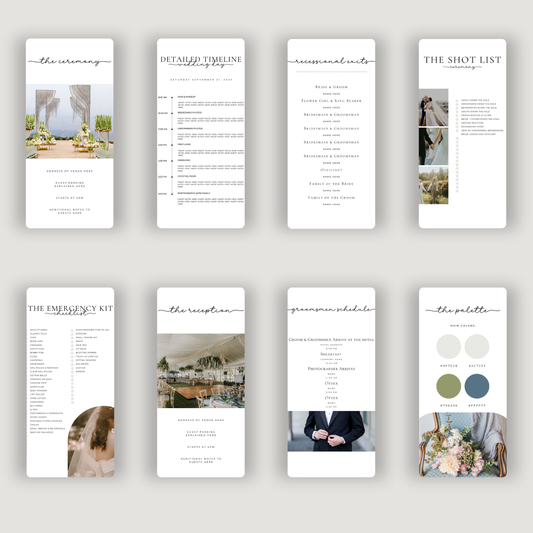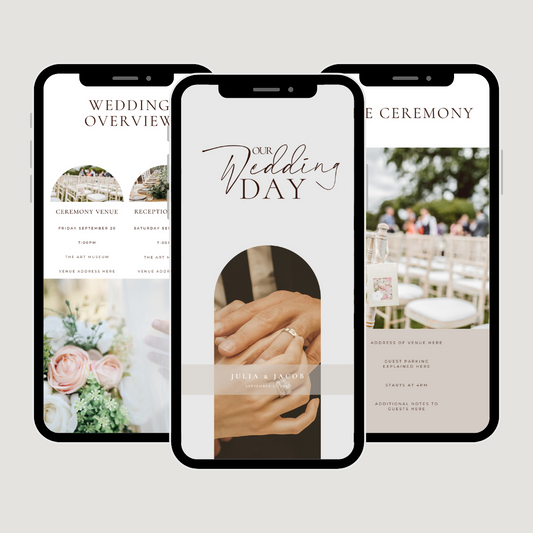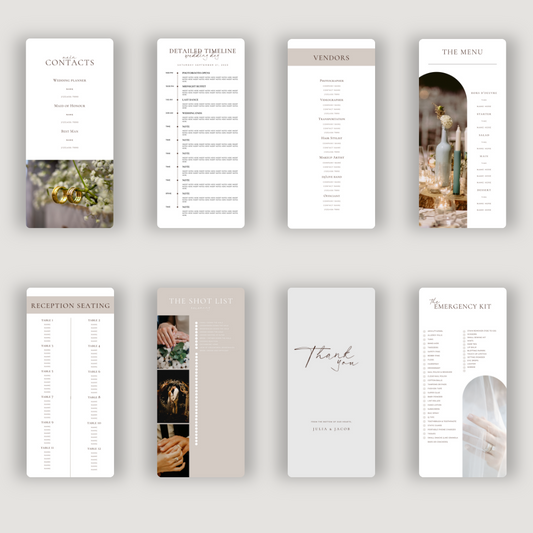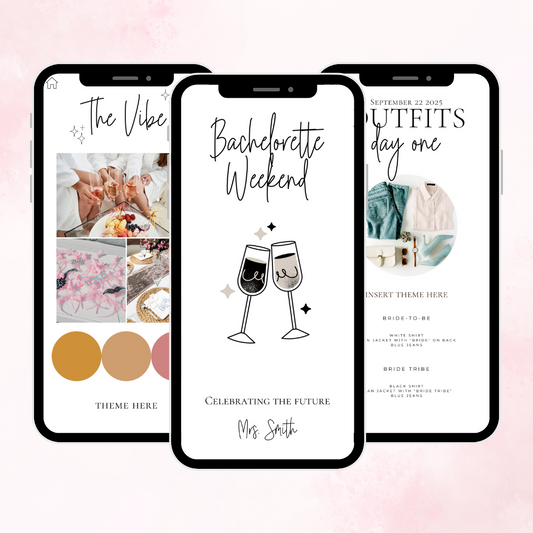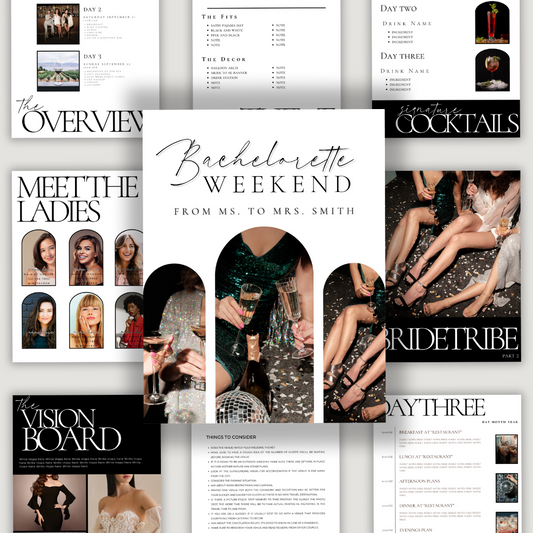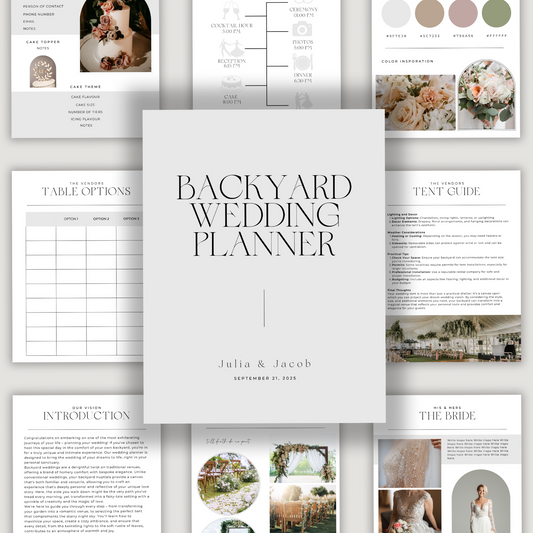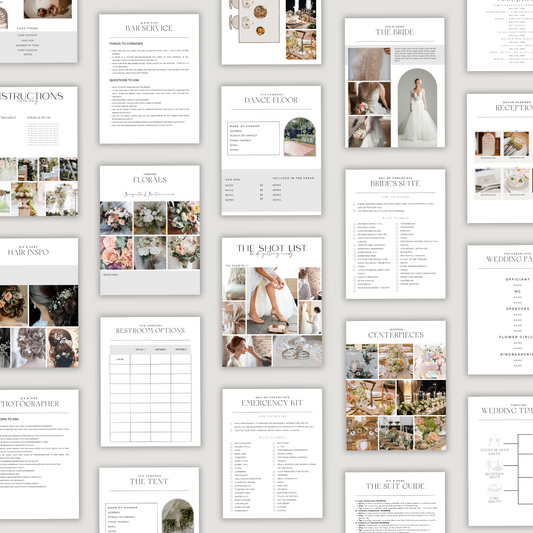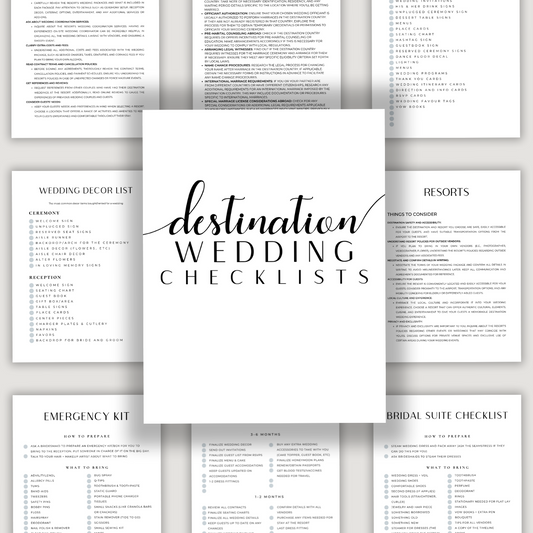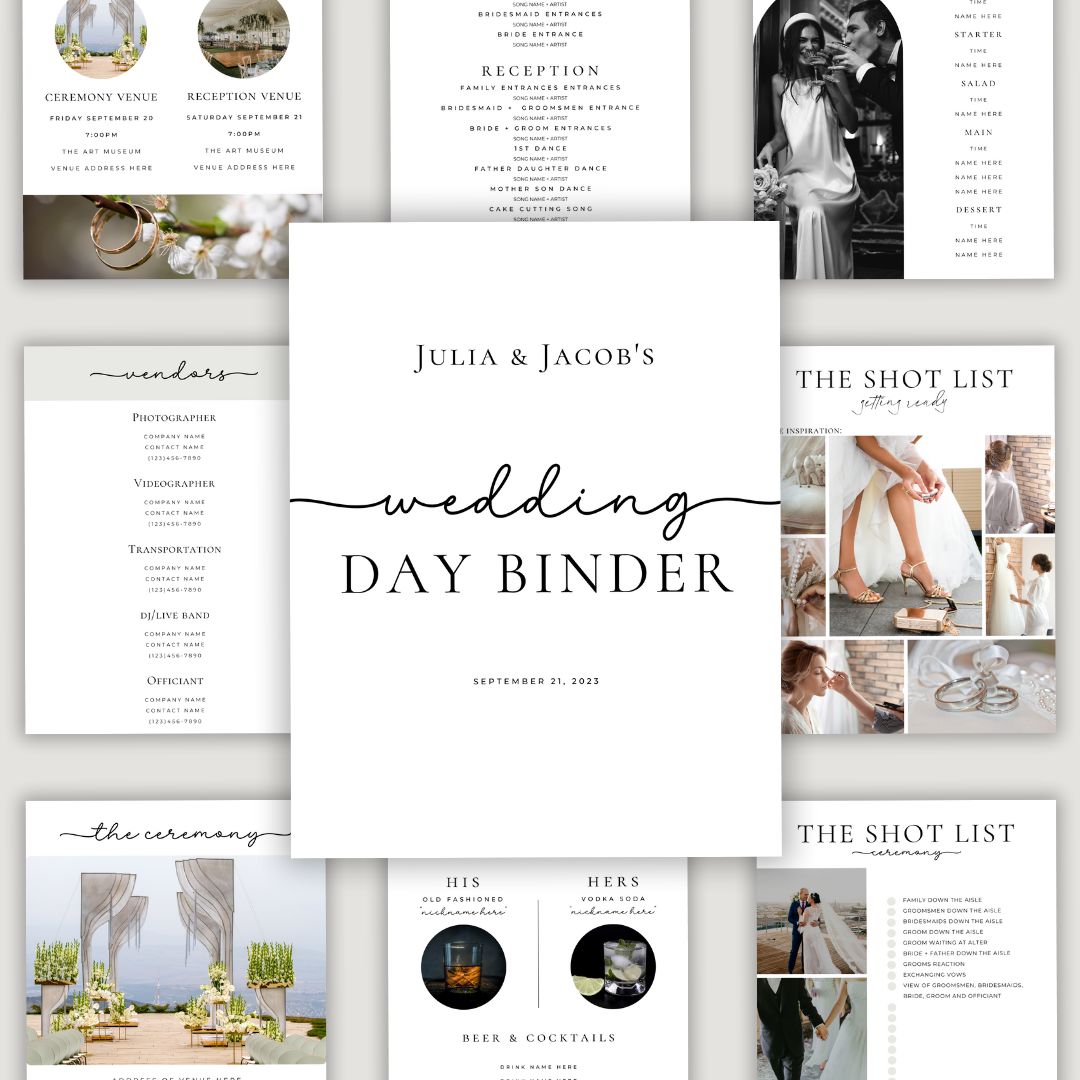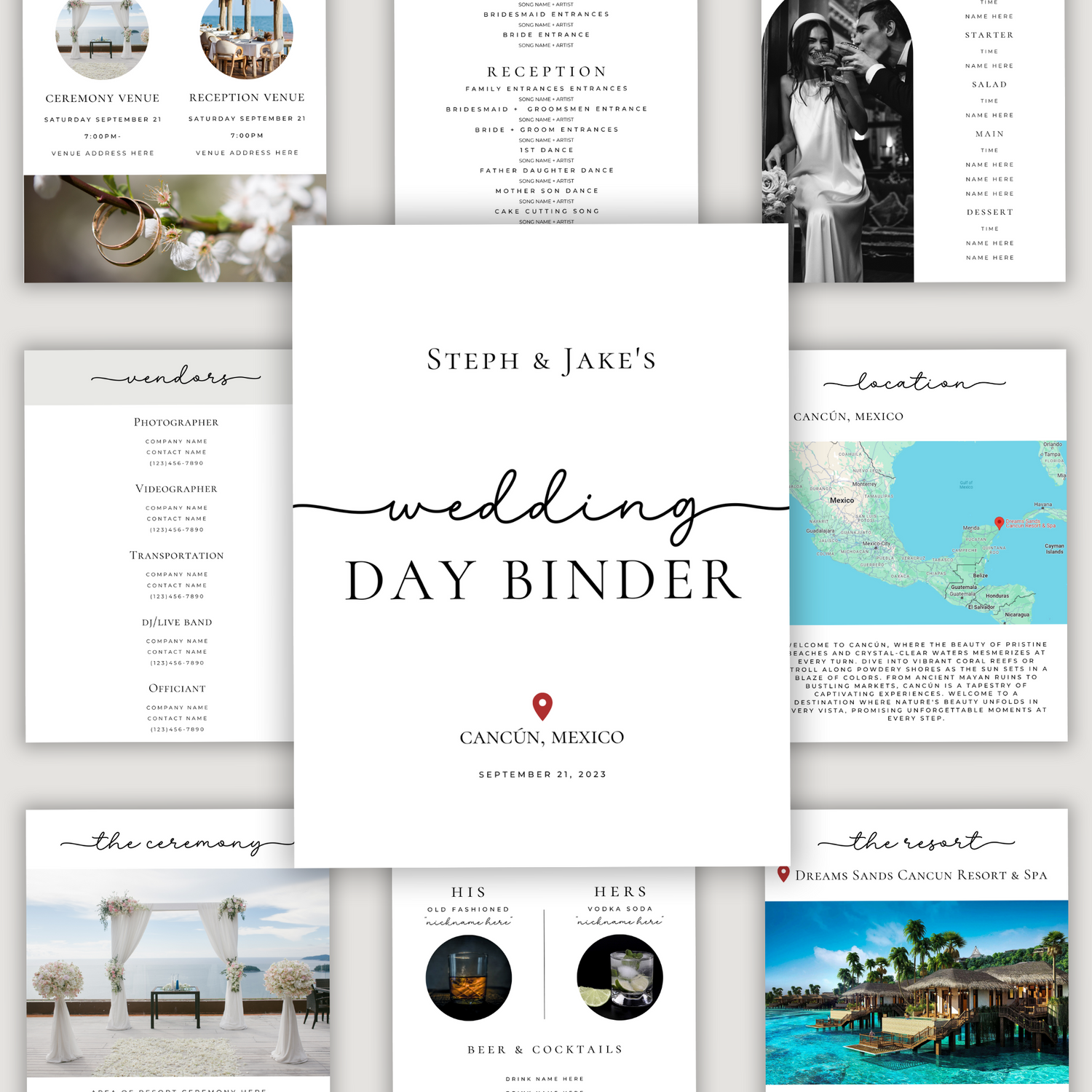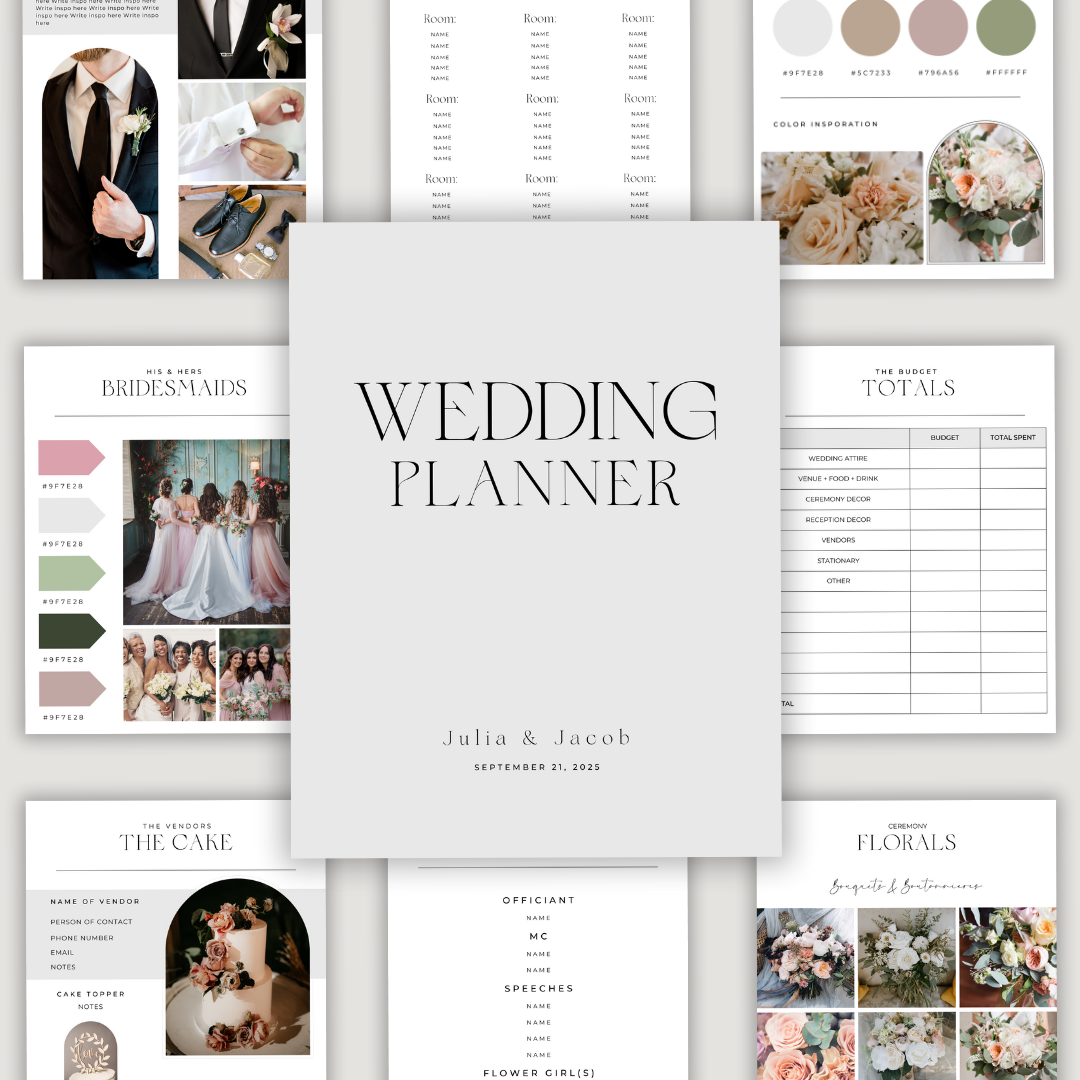Planning a Wedding Without a Wedding Planner: A DIY Guide
Share
Planning a wedding without a professional wedding planner may seem overwhelming, but with the right tools and organization, you can absolutely do it yourself. By taking control of the process, you can save money and make sure every detail reflects your personal style. Whether you’re trying to stay within a tight budget or simply prefer a hands-on approach, this guide will help you plan a beautiful, memorable wedding on your own.
1. Get Organized from Day One
When you’re planning a wedding without a planner, staying organized is crucial. Create a master checklist that breaks down every step of the process—from booking your venue to finalizing your guest list. Having all your tasks laid out in one place will help you stay on track and avoid missing important details.
Pro Tip: Our Wedding Day Binder is designed to help you manage every aspect of your wedding. With sections for checklists, schedules, vendor details, and more, it’s the perfect tool for any DIY bride or groom.
2. Set Your Budget
Without a wedding planner to help allocate your funds, it’s essential to establish a clear budget early on. Break your budget down into categories like venue, catering, attire, décor, and photography. Make sure to leave a little wiggle room for unexpected expenses that might pop up.
Tip: Use our Wedding Planner to track your budget in detail. It includes pre-designed budgeting templates to ensure you’re staying within your limits and making the most of your funds.
3. Create Your Timeline
A wedding planner’s job is often to keep things running smoothly on the day of the wedding, but when you're going solo, you’ll need to create a detailed timeline yourself. This includes everything from getting ready in the morning to the last song at the reception.
Tip: Be realistic with your timing. It’s better to leave a little extra time for each activity than to rush through important moments like photos or toasts.
Pro Tip: Our Wedding Day Binder includes pre-filled timelines to help you plan out your wedding day in detail, ensuring you don’t miss a beat.
4. Book Your Venue and Vendors Early
Without a wedding planner to negotiate with vendors, you’ll want to book your venue, caterers, photographer, florist, and other key vendors as early as possible. Start by researching local vendors, reading reviews, and asking for recommendations from friends and family. The earlier you book, the more likely you are to secure your preferred vendors at the best prices.
Tip: Some vendors offer package deals or discounts for weekday weddings or off-season dates, so don’t hesitate to ask about special offers.
5. Stay on Top of Communication
One of the biggest responsibilities of a wedding planner is keeping in touch with vendors and ensuring everyone is on the same page. Without a planner, it’s up to you to manage all communications. Keep a spreadsheet or folder with vendor contacts, contracts, and key dates to make sure nothing slips through the cracks.
Pro Tip: Our Wedding Day Binder has dedicated sections for vendor management, making it easy to keep track of all your contracts, payments, and contact details in one place.
6. Design Your Décor
Décor plays a huge role in creating the look and feel of your wedding, and without a wedding planner to handle the details, you’ll need to take this into your own hands. Start by choosing a theme or color palette, then decide on your flowers, centerpieces, signage, and lighting. You can DIY many of these elements to save money while adding a personal touch to your event.
Pro Tip: Check out our Wedding Decor Planner for creative décor ideas, budget-friendly tips, and DIY projects that will make your wedding beautiful without breaking the bank.
7. DIY Signage and Invitations
Wedding signage and invitations are another area where you can save money by going DIY. Whether you choose to create your own designs or use editable templates, you can craft custom invitations and signs that match your theme perfectly.
Tip: Our editable Wedding Signage Templates make it easy to create beautiful, custom signage for your wedding, from welcome signs to seating charts, all at a fraction of the cost of hiring a professional.
8. Delegate Tasks
While you may not have a professional planner, that doesn’t mean you need to do everything yourself. On the day of your wedding, you’ll need someone to help with setup, manage the timeline, and make sure vendors are in place. Delegate these tasks to trusted friends or family members so you can focus on enjoying your big day.
Tip: Create a task delegation sheet to assign specific duties, such as ensuring the DJ knows when to start or making sure the caterer sets up on time. Our Wedding Day Binder includes task delegation templates to help you stay organized.
9. Plan a Detailed Wedding Day Timeline
Without a wedding planner coordinating things on the big day, it’s essential to have a detailed timeline that covers everything from the ceremony to the reception. You’ll need to plan when vendors should arrive, when the ceremony starts, how long each part of the reception will last, and when key moments like the first dance or cake cutting will occur.
Tip: Share your timeline with vendors, your wedding party, and anyone helping with coordination, so everyone knows what to expect.
10. Enjoy the Process
Planning a wedding without a planner can be a lot of work, but it also gives you the freedom to create exactly the kind of wedding you want. Make sure to take breaks, enjoy the process, and remember that this day is about celebrating your love with the people who matter most.
Final Thoughts
Planning a wedding without a wedding planner may feel like a challenge, but with the right tools, a well-organized plan, and a little help from friends and family, it’s completely achievable. By staying organized, delegating tasks, and using tools like our Wedding Day Binder and Wedding Planner, you can plan a stunning wedding that reflects your vision, all without hiring a professional planner.
Happy planning, and enjoy your special day!

